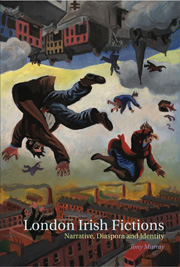12 - Conclusion
from Part III - The Second Generation
Summary
The psychological journey of migration always takes far longer than the geographical one.
The novels, short stories and auto/biographical texts I have examined in this book are written and peopled by men and women who, as well as making journeys from one country to another, have embarked upon narrative journeys of the mind. Unlike the geographical journey of migration, however, narrative is not a linear process. Instead, it possesses an inherent temporal elasticity that often enables writers to deploy inventive methods and modes of storytelling and characterization. Rather than simply providing a series of period snapshots, these texts reveal how identities are configured over time as well as space. In other words, they tell us not just how individuals conceive of their identities in a given moment and place, but how those identities evolve according to changing locations, aspirations, and reflections. Narrative, therefore, is the vehicle upon which authors and their characters rely in order to mediate, if not always resolve, the dilemmas and paradoxes of the diasporic condition.
In the literature of the post-war Irish in London, this endeavour is perhaps most apparent in the relationship between exile and escape. The former has a long history in Irish literature and culture and in the texts covered here produces a range of familiar and not so familiar effects, ranging from comic to tragic. Escape, on the other hand, is generally a much less prominent theme in Irish culture.
- Type
- Chapter
- Information
- London Irish FictionsNarrative, Diaspora and Identity, pp. 187 - 192Publisher: Liverpool University PressPrint publication year: 2012



